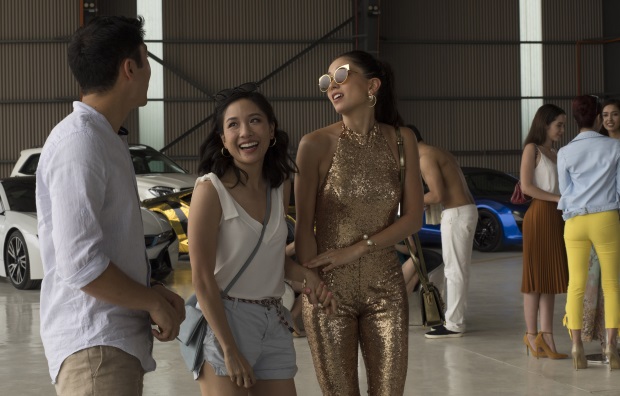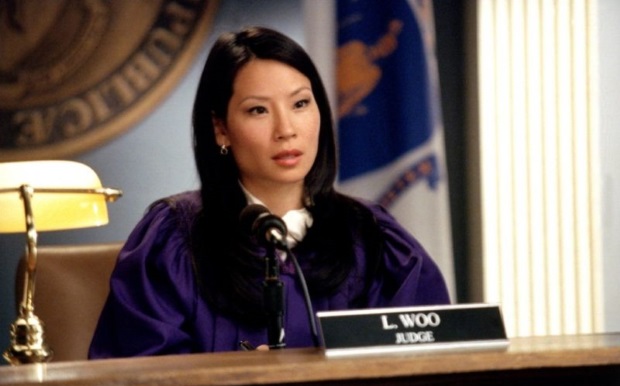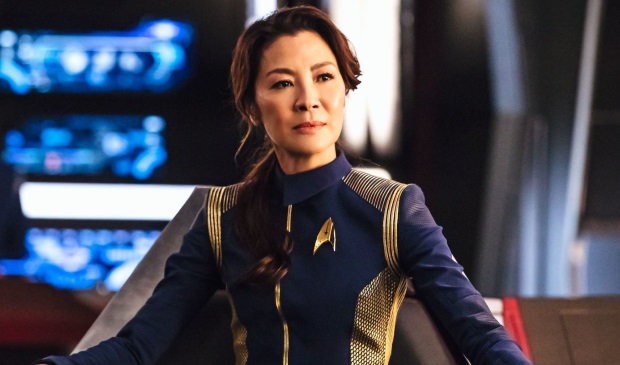How Crazy Rich Asians is Changing the Face of Hollywood
The release of Crazy Rich Asians highlights a much-needed change in Hollywood. But it’s only the latest step of an ongoing journey..
This weekend, a romantic-comedy by Now You See Me 2 director Jon Chu was released in the US. It ended up topping the domestic box office with takings of $34 million. This may not sound like much by summer blockbuster standards, but it is the first major Hollywood film since 1993 drama The Joy Luck Club to feature an all-Asian cast – marking a major step in tackling diversity in cinema.
Based on the book by Chinese-American author Kevin Kwan, Crazy Rich Asians follows Rachel (Constance Wu), a Chinese-American who travels to Singapore with her boyfriend Nicholas Young (newcomer Henry Golding) to meet his parents and attend his best friend’s wedding. However, she soon discovers that her boyfriend is not only super-rich but is one of the country’s most eligible bachelors – a connection that makes her the unwitting target for money-hungry socialites and, worst of all, Nick’s overbearing mother Eleanor (Michelle Yeoh).
Despite certain misgivings over Golding’s casting, whitewashing decisions and a lucrative deal with Netflix, director Jon Chu took a gamble on making Crazy Rich Asians a fully fledged cinematic feature in order to highlight Asian characters in Hollywood. In a year where diversity is making an impact in the film industry, the film follows in the footsteps of Black Panther and BlackKKlansman to show that there is a place for underrepresented Asian actors and characters in Western cinema.

While my Hong-Kong born parents were working hard in a Chinese restaurant, videos were my entertainment. Bruce Lee in Enter The Dragon at five years old may be an odd introduction to cinema, yet it struck a chord in me. An American film with a Chinese lead character, speaking fluent English with Caucasian characters to me, was normal.
Little did I know, it was anything but.
East Asian actors have been working in Hollywood since the 1950s, with favourites being Jet Li (Lethal Weapon 4), James Hong (Big Trouble In Little China) and Ken Jeong (The Hangover). Frequently cast as supporting characters having strange interactions with white characters resulted in a lack of relatable roles for Asian-American audiences.
“Our faces read as foreign.” (Hahn Nguyen, Indie Wire senior editor)
For a long time, whitewashing has overcast the careers of most ‘non-white’ actors in Hollywood, enabling studios to present falsely ‘diverse’ characters without the risk of actors being unable to deliver the dialogue as intended.
Early examples saw Caucasian actors such as Lon Chaney Sr. (Mr. Wu) and Norma Talbridge (Forbidden City) use ‘yellowface’ to portray Asian characters, a trend later adopted by Christopher Lee (Fu Manchu), Walter Oland (Charlie Chan) and, infamously, Mickey Rooney in Breakfast At Tiffany‘s. These longstanding caricatures are offensive.
Recently whitewashing has been used to secure popular actors in Hollywood productions such as Matt Damon in The Great Wall (a film primarily set in China), Scarlett Johansson in the remake of Japanese anime Ghost In The Shell, and Emma Stone’s half-Chinese character in Aloha. The good news is that all three films were criticized for their casting choices, questioning why Asian actors weren’t used.
Whitewashing is also a form of typecasting especially of female characters. Terms have been used to negatively categorize characters, giving impressions of vulnerability or dangerousness. For instance, Lucy Liu’s portrayal of lawyer Ling Woo in Ally McBeal popularised the ‘dragon lady’ stereotype in mainstream media, as she seduced Caucasian male characters yet maintain a cold-hearted persona. In contrast, Shu Qi’s Lai in The Transporter is an ‘exotic beauty’, offering sex to appease her ‘white savior’ Frank Martin (Jason Statham). These roles couldn’t be more different, yet they both fall into one-dimensional stereotypes and do little to show Asian characters as relatable.

Alternatively, due to a misunderstood unfamiliarity with Western customs or an inability to speak English ‘properly’, Asian cast members become comic relief. Alexander Payne‘s Downsizing shows impoverished activist Ngoc Lan Tran (Hong Chau) with a strong Vietnamese accent and broken English, to be reliant on Caucasians to survive, with a ‘forcible’ nature that reduces her to a racial caricature.
Whether they play a good or bad guy, studios fear that Asians won’t appeal to Western audiences and won’t guarantee financial success.
“When a white actor gets the role, it denies us our bodies and it denies us our voices.” (Pan Bandhu)
This lack of East Asian actors reinforces the idea that they are unable to drive a major Hollywood production, confining them to the passenger seat, and denies them the right to prove otherwise, leading to marginalisation not only in entertainment, but in Western society.
“I can’t mount a film of this budget… and say that my lead actor is Mohammad so-and-so from such-and-such… I’m just not going to get financed.” (Ridley Scott)
Despite the above, East Asian actors and characters haven’t been completely dismissed. Action cinema from John Woo, and wuxia or kung-fu films such as the Oscar-winning Crouching Tiger, Hidden Dragon, and House Of Flying Daggers have proven popular with Western audiences, and provided a platform for renowned East Asian stars to make their big break in Hollywood – think Jackie Chan, Jet Li, Donnie Yen and Michelle Yeoh.
However, East Asian actors are ultimately resigned to these ‘culturally significant’ roles for niche audiences, which makes it that little bit harder to guarantee box-office success.
There is good news. Times are changing, with fans crying out for authenticity and faithfulness to source material. Notably Niki Caro casting Asian actors in her live-action remake of Mulan, and Crazy Rich Asians‘ all-Asian cast. Actors can also make a difference, with British actor Ed Skrein leaving the Hellboy remake to ensure that his intended role is culturally cast correctly.
There are many in the entertainment industry who believe that talented Asians can drive a story and that whitewashing is avoidable.
“We don’t get opportunities to be on TV. That’s why when we get opportunities like this, it matters.”
This message by Jessica Huang (Crazy Rich Asians’ Constance Wu) in Fresh Off The Boat is simple, yet timely. Starring Wu and Randall Park, Fresh Off The Boat is the first US sitcom that features an Asian-American family since Margaret Cho’s 1990s sitcom All-American Girl. East Asian or Asian-Americans continue to quietly make their mark on TV, including Lauren Tom cast as Ross’s palaeontologist girlfriend Julie in Friends. Most notably, Asian actresses are driving shows, such as Chloe Bennett in Agents Of SHIELD, Gemma Chan in Humans and Michelle Yeoh in Star Trek: Discovery.

And yet the struggle continues, with Daniel Day-Kim leaving Hawaii Five-O due to being reportedly paid less than his Caucasian co-stars, and Bennett openly revealing that she changed her Chinese name to improve her job prospects. So while the goal is in sight, there are many other obstacles that stand in the way.
Due to an increased media presence and intense word-of-mouth from Asian-Americans, Crazy Rich Asians topped the US box office on its opening weekend, making it the first romantic-comedy to do so in three years. If anything, this shows that diversity in Hollywood – especially when it comes to Asian actors – is of key importance. But after so many years of being dismissed from the entertainment world, when will the industry catch up?
Read the latest Den of Geek Special Edition Magazine Here!